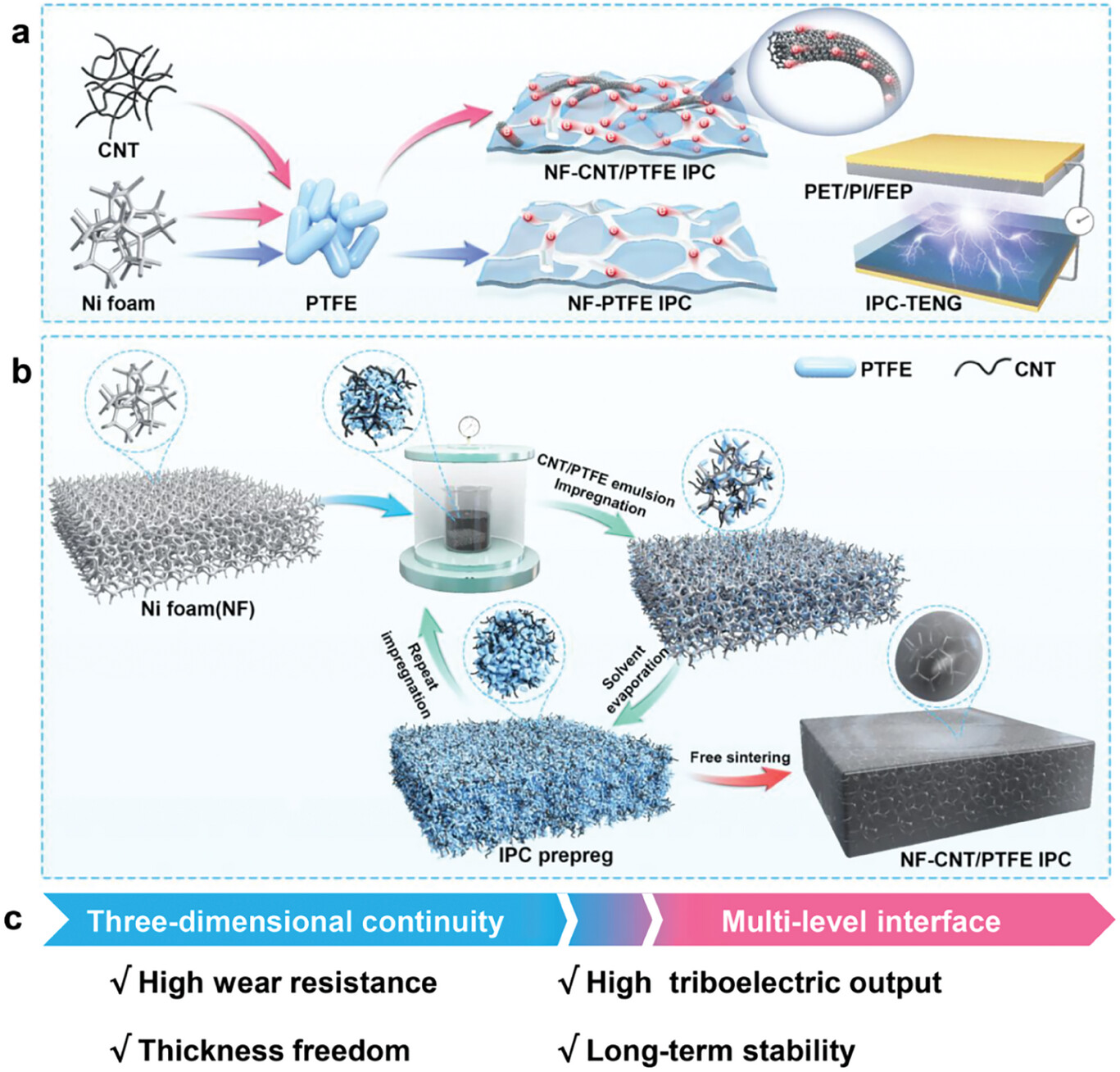Abstract
Interpenetrating phase composites (IPCs) are gaining popularity because of their unique topological characteristics, which include their light weight and ability to conduct electricity. Herein, a novel metal-polymer IPC composed mainly of a 3D nickel foam(NF) at the microscale and a polytetrafluoroethylene (PTFE) matrix are developed. Moreover, a nanonetwork composed of carbon nanotubes (CNTs) bridging the nickel skeleton and PTFE matrix is created within the IPC via a simple impregnation method. The construction of a micro/nano hybrid network not only enhances the tribological performance and friction heat dissipation but also increases the triboelectric output response, which is 30 and 7.5 times greater than that of pristine PTFE and binary NF-PTFE IPC, respectively. The fabricated IPC endures long-term tests after 36 000 cycles without notable wear scarring, exhibiting great potential for future optimization of triboelectric nanogenerator(TENG) durability and potential application in a variety of fields, such as wear-resisting materials, high-performance energy absorption and heat management.

Keywords Plus:CARBON NANOTUBE,NANOCOMPOSITES,BEHAVIOR,OPTIMIZATION,GRAPHENE
Published in SMALL;10.1002/smll.202409607


